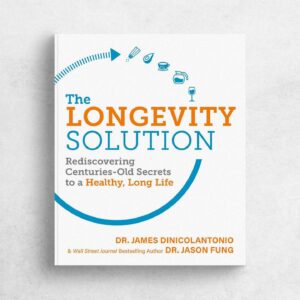The populations of China and the Far East are slowly developing the same epidemic of diabetes and obesity that has overtaken the United States. As noted in the previous post, one of the strongest correlations with obesity is the intake of wheat. As noted in the Sugar section, the sugar intake is also increasing the most rapidly.
In the 1990’s the INTERMAP study showed that the Chinese diet was very high in carbohydrate (white rice) but very low in sugar. This led to very little in the way of diabetes or obesity. For years, this was believed to exonerate the carbohydrate as a major cause of obesity. After all, they reasoned, if carbohydrates caused obesity, China should have it.
However, all carbohydrates are not equivalent. Sugar, as we have seen, is doubly fattening. The glucose acts as a highly refined carbohydrate to increase insulin. The fructose is far more insidious in causing insulin resistance.
Wheat, particularly in the modern iteration may be particularly fattening for numerous reasons. The high level of amylopectin means that most of the starch contained in flour is efficiently converted to glucose. This deadly combination of wheat and sugar has been introduced into the Chinese diet. The result is a Chinese diabetes catastrophe. The prevalence of diabetes in China has now even outstripped the USA.
This is the answer to the paradox of the Asian Rice eater puzzle. Why didn’t the Chinese have a diabetes epidemic in 1990 with all their white rice? Well, because they didn’t eat any sugar (fructose), they were not developing insulin resistance. Because they were not snacking all the time, they had periods of low insulin level that helped prevent the development of insulin resistance. So the high rice intake by itself was not enough to cause either of diabetes or obesity.
Once their diet became more Westernized, it was a disaster waiting to happen. With the higher intake of sugar and increased eating opportunities, insulin resistance in the the liver began to develop. This, now combined with the high carbohydrate intake leads to excess diabetes even with obesity levels far lower than the United States.
It is useful to look at a the Tokelau Island Migrant Study as a microcosm of what is happening now in China. The Tokelau Islands are a group of 3 small coral atolls in the South Pacific. Part of the United Kingdom since 1877, sovereignty was transferred to New Zealand in 1948. Their diet was dominated by coconut, fish and breadfruit. Because of the coconut, the amount of saturated fat was very high.
In 1966, under the threat of overpopulation, half the natives were moved to New Zealand where their traditional diet underwent rapid change to a Western diet. Consumption of modern processed foods such as sugar and flour increased over 6 fold. Sugar intake increased from 2% of calories to 14% in 15 years.
There was a steady increase in the weight of the population. On average, by 1983 the Tokelau Migrants gained 11 pounds compared to the non-migrants and over 20 pounds more than they weighed in 1968. This is an especially comparison since it removes all the genetic factors from the equation.
What about diabetes? The prevalence of diabetes just about doubled. In other words – a diabetes catastrophe. Just like China.
Since diabetes is simply high insulin resistance, you can see how the addition of sugar and wheat would significantly increase the insulin resistance. The high level of processing will also tend to decrease one of the main protective factors – fibre.

Fat is also a natural protective factor that has been removed from the traditional diet. In the case of North America, it was deliberately reduced.
The truly scary thing about this all, of course, is that unless we figure out what is causing the diabesity epidemic, things will get worse. Insulin resistance causes increased insulin levels which feeds back and causes higher insulin resistance in a classic vicious circle. Scary.
Continue to Fat Phobia – Hormonal Obesity XXXIV
Start here with Calories I – How Do We Gain Weight?

By The Fasting Method
For many health reasons, losing weight is important. It can improve your blood sugars, blood pressure and metabolic health, lowering your risk of heart disease, stroke and cancer. But it’s not easy. That’s where we can help.












Responses